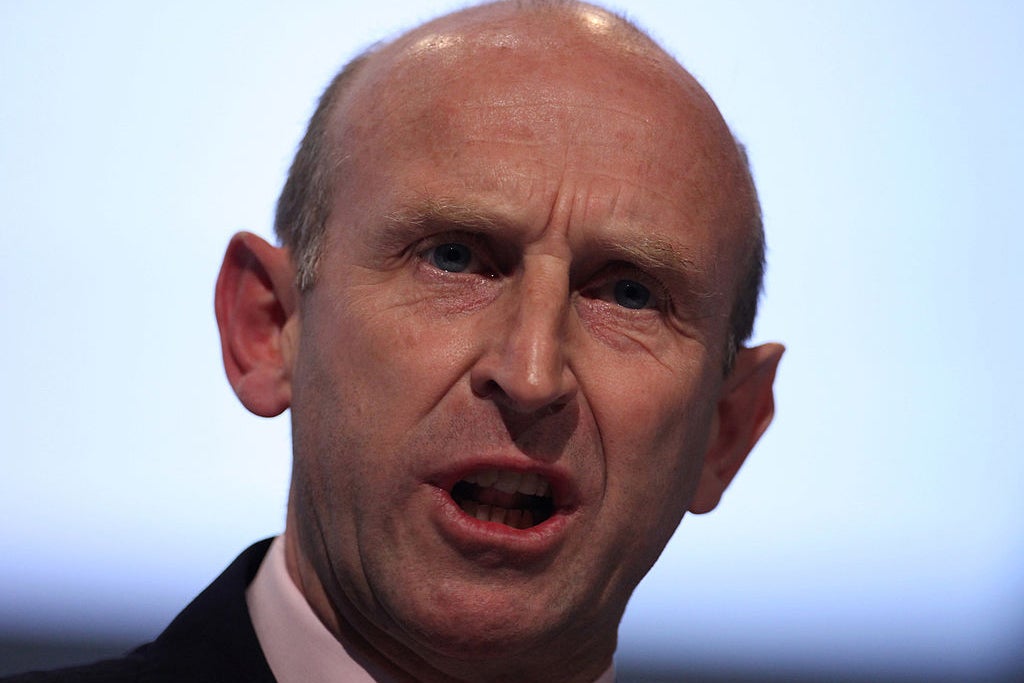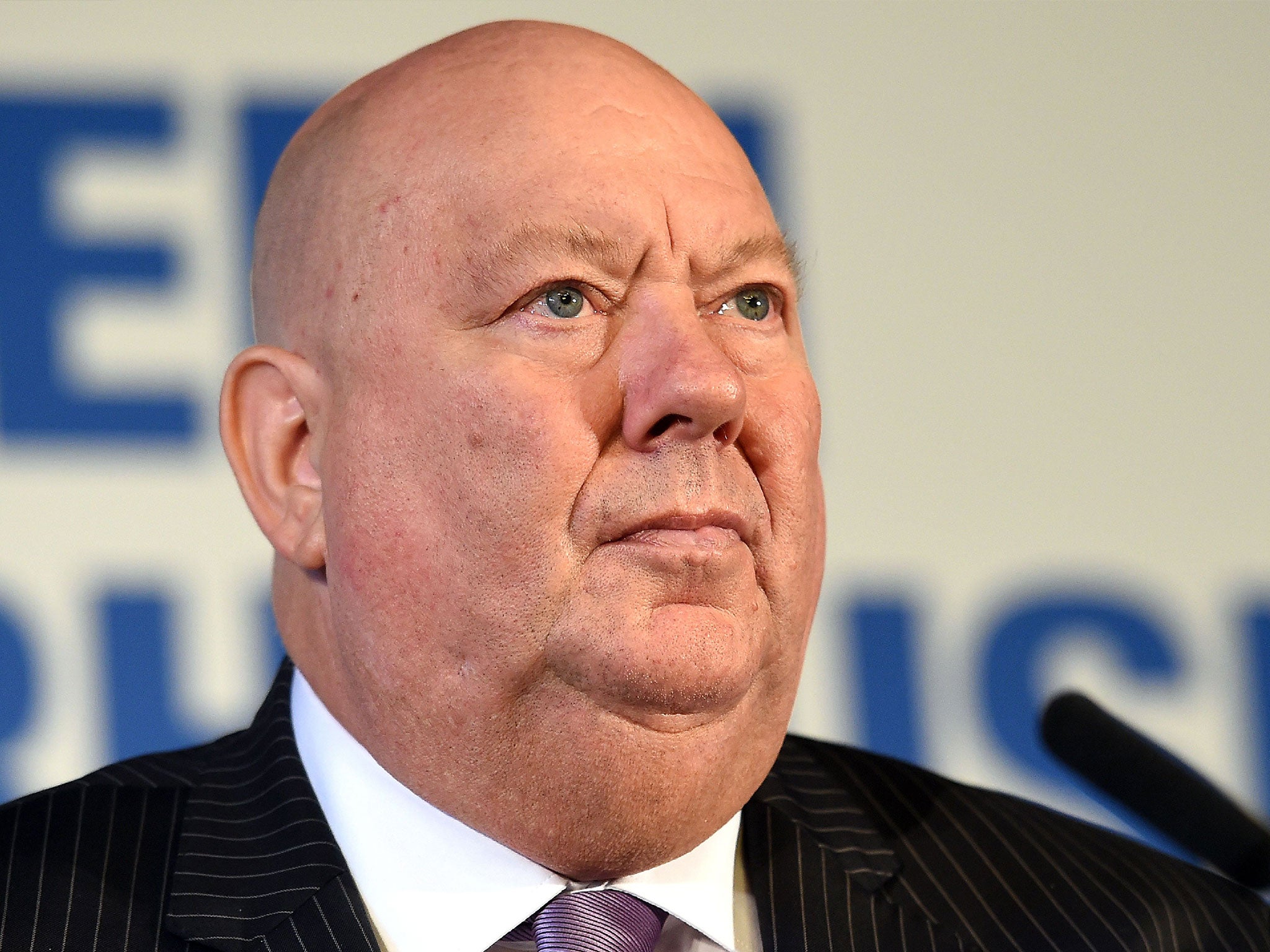Ministers accused of ‘blighting’ children’s lives with slum homes in rented sector
Shadow housing minister John Healey condemns government rejection of landlord licensing schemes in cities like Liverpool

Labour has accused the government of “blighting the childhoods” of thousands of children after new analysis of housing statistics showed that 680,000 are growing up in slum conditions in private rented homes.
Boris Johnson promised a Renters’ Reform Bill to drive out rogue landlords in last month’s Queen’s Speech, and housing secretary Robert Jenrick later announced 100 councils across England would share £4m to tackle the problem of inadequate or unsafe homes in the private rented sector.
But shadow housing secretary John Healey said ministers are making it more difficult for councils to deal with the problem by vetoing or restricting a series of local landlord licensing schemes drawn up by Labour authorities to drive standards up.
Most recently, Liverpool City Council was told last week that it could not continue with its licensing scheme, which had resulted in 37,000 compliance actions, more than 2,500 improvement notices and the prosecution of 250 landlords since its introduction in 2015.
Mr Healey said Labour’s analysis of figures from the English Housing Survey (EHS) shows that one in four children in private rented homes live in properties classed as “non-decent” because they are not in a reasonable state of repair, do not have reasonably modern facilities and services, or have ineffective insulation or heating.
An independent review published last year quoted reports from housing inspectors of “appalling” conditions, including inadequate heating, defective or absent lighting, staircases without bannisters, rat infestations and tenants who were afraid to go to sleep because their front doors would not lock.
Mr Healey said the problem was not confined to overcrowded areas of London where housing is in great demand, but was also affecting areas in the midlands and north of England, where Conservatives took a rash of seats from Labour in the December election.
He is planning to amend Mr Johnson’s renters’ bill to introduce a new “property MOT” for all landlords with fines of up to £100,000 for any found not to be maintaining decent standards.
And he said he will seek to amend legislation in the Commons to prevent ministers vetoing local schemes designed to improve standards in the rented sector.
“Tory ministers are blighting the childhoods of kids growing up in slum rented homes,” Mr Healey told The Independent.
“It’s a bad start for Boris Johnson when the new Conservative government is giving a green light to slum landlords by vetoing council schemes designed to bring homes up to scratch. They’re letting down renters who need their help.”
EHS figures show that around 150,000 children are living in homes classed as non-decent in London, another 150,000 in the north, 160,000 in the midlands and 220,000 in the south of England outside the capital.

Mr Healey said: “Some of the worst conditions are in areas in the north and the midlands where voters who lent their votes to the Tories will end up bitterly disappointed by a Conservative party unwilling to act on bad landlords.
“I’ll keep fighting to drive up housing standards and give all kids a decent start in life.”
Licensing for private sector landlords in designated areas was introduced under the Housing Act of 2004, but changes introduced in 2015 mean that councils require ministers’ approval to institute larger schemes.
The schemes allow local authorities to inspect properties in the area and enforce compliance with the conditions of the licence, with costs covered by a fee charged on landlords.
With the decline of council housing and the increasing unaffordability of home ownership, the private rented sector has doubled in size since 2002 and now covers around one-fifth of households. Councils have reported that the growth of the sector has been accompanied by an increase in problems including poor property conditions, according to the independent review of the licensing system conducted last year for the Ministry of Housing, Communities and Local Government (MHCLG).
The review found that more than 90 per cent of councils operating schemes believed that they were effective in dealing with bad landlords. It called for the licensing system to be retained, and proposed new powers to enforce action where hazards such as excessive cold or faulty electrics made a home unfit for human habitation.
But the government has yet to respond to the report, published last June.
And Mr Jenrick last week rejected an application by Liverpool to continue with its licensing scheme, the largest in the country, covering 55,000 properties across the whole city.

The Mayor of Liverpool, Joe Anderson, said he was “gravely concerned” by the decision.
Mr Anderson told The Independent: “A third of children in Liverpool are living in poverty and welfare reforms such as the bedroom tax are pushing more and more families into cheaper rented accommodation.
“Landlord licensing has been a foot in the door, giving us the power to get inside properties.
“Some of the things we have uncovered have been shocking. It is not uncommon to find unsafe electrics and gas supply, no fire doors and issues with damp and heating. We need more powers to tackle this type of issue and bring landlords to book, not less.
“It is not just about raising housing standards, it is about protecting and saving lives. I am gravely concerned about the decision to turn down our application. We simply will not have the resources to proactively protect the most vulnerable in the same way.”
In August last year, the MHCLG blocked plans for a licensing scheme to cover 3,000 privately rented properties in Conservative-led Stoke Council, saying it did not meet the “statutory criteria”. An application by Newham to renew its scheme covering the whole east London borough was restricted in 2017 to exclude certain postcodes. A scheme in the east London borough of Redbridge was refused in 2015.
The ministry said it was considering the recommendations of last year’s review and would respond to them in due course. The department pointed to figures from the English Housing Survey showing numbers of non-decent homes in the private rented sector were down by 15 per cent since 2010.
An MHCLG spokesperson said: “Children deserve the best possible start in life, which includes having a safe and decent home – that is why we are committed to driving up standards across the rented sector.
“Local authorities have strong powers to enforce against criminal landlords, including civil penalties of up to £30,000 and banning orders for the worst offenders.”
David Smith, the policy director of the Residential Landlords Association, said there was “no evidence” that council licensing schemes improve standards.
“Licensing is not linked to any kind of inspection of a property and even if it was, very few councils have the resources to do so,” Mr Smith said. “All that happens is that good landlords come forward to be licensed whilst the criminals continue to operate under the radar.
“Councils should instead focus on rooting out the crooks who provide sub-standard housing and bring the sector into disrepute. This should include ensuring they use the wide range of data they can already access to find landlords, such as asking tenants to identify them on their council tax returns.”
Join our commenting forum
Join thought-provoking conversations, follow other Independent readers and see their replies
Comments